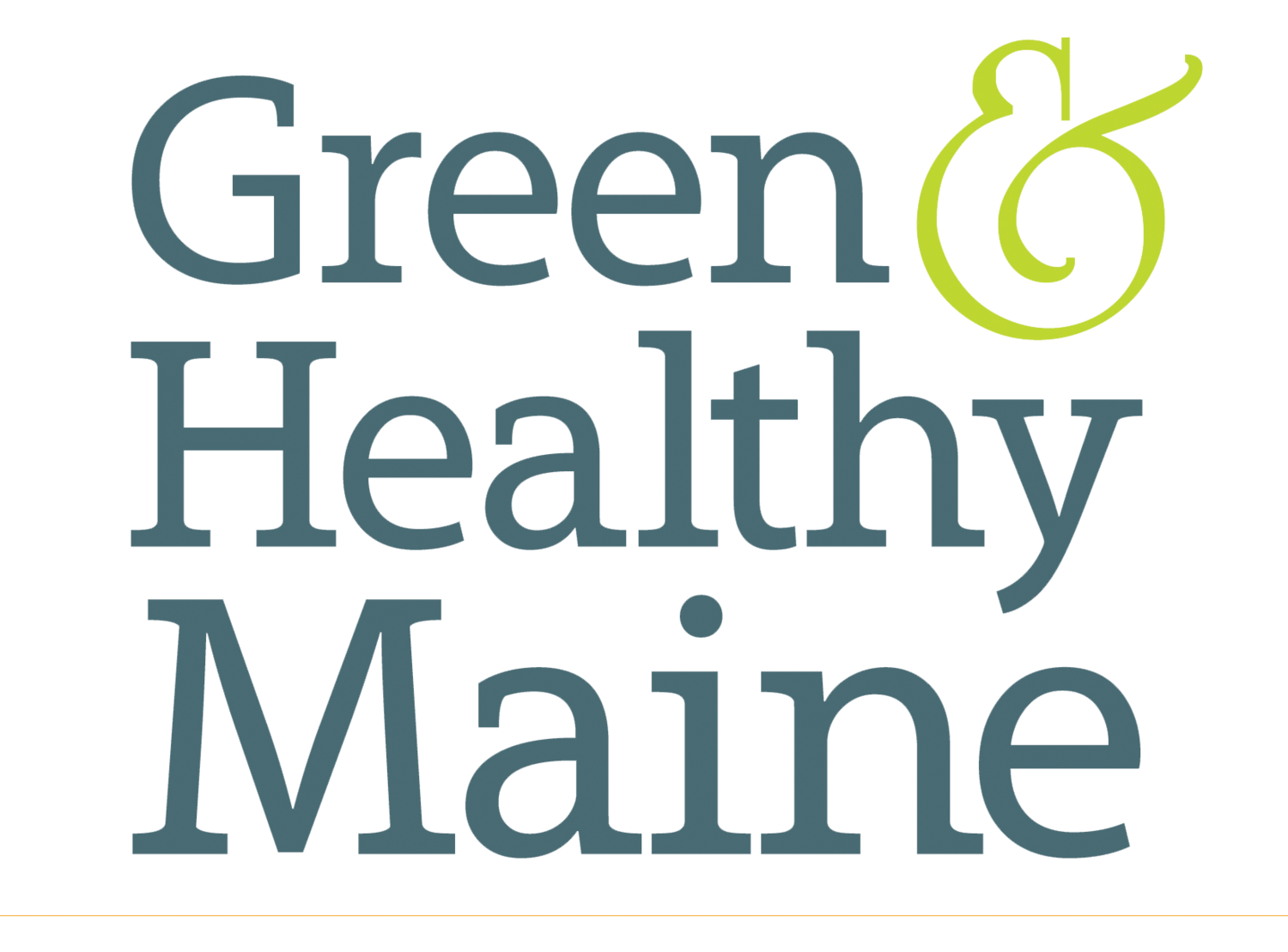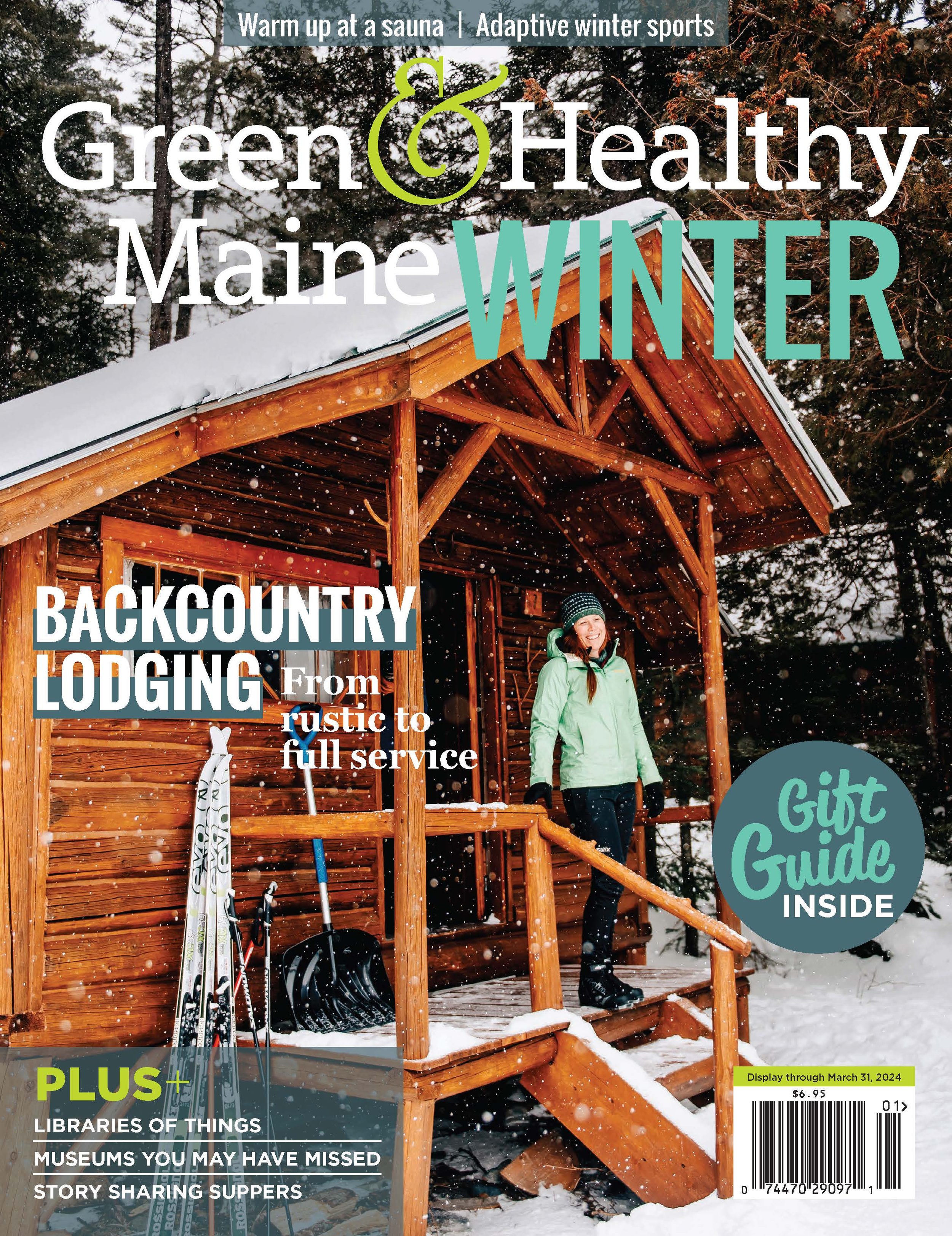Story Sharing Suppers: Eat, drink & build community
Maine nonprofit combines homemade food with heartfelt storytelling at unique potluck events.
Robert Stevens of Woolwich shares a story with a rapt audience at a Story Sharing Supper in West Bath.
By June Donenfeld
Photos by Karl Schatz
There is alchemy in food and fellowship, especially at potluck meals with people you don’t know yet. When you tuck into delicious dishes while forging new connections, the result is culinary and community gold.
No one knows this better than Margaret Hathaway and Karl Schatz, the husband-and-wife founders of a new statewide, not-for-profit organization called Community Plate that builds community and preserves family histories through food-centered books, a podcast, workshops and what they’ve dubbed Story Sharing Suppers. These events bring together people of all ages and backgrounds who gather for unforgettable evenings of homemade food, deep conversations and heartfelt storytelling.
Hathaway and Schatz are the owners of Ten Apple Farm in Gray, where they raise dairy goats, look after a large garden and small orchard, make cheese, run workshops and operate a guest house. Hathaway is a writer who’s worked in corporate communications and book publishing, and Schatz is a photographer who’s been the online photo editor for TIME magazine and the director of Aurora Photos. The couple are also behind seven books on food and farming, including Maine Bicentennial Community Cookbook and Maine Community Cookbook, Volume 2. Published in 2020 and 2021, respectively, the books elicited an “overwhelming response,” says Schatz. “There was an outpouring of incredible warmth and community. We were blown away.” Wanting to build on this momentum, he explains, they came up with both the idea for public Story Sharing Suppers and for an organization that would ensure it “could all happen as a community effort.”
To put the idea to the test, a private Story Sharing Supper took place at Ten Apple Farm in March 2023, with a small group of about 20 that included family, friends and friends of friends. Hathaway and Schatz were thrilled with the results. “Everything went really well,” says Schatz. “We felt we had the support for turning this type of event into a new organization.” And so Community Plate was born.
The inaugural public Story Sharing Supper was held in Lubec, the easternmost town in the U.S., in June 2023, thanks to an invitation from a friend who also happened to be the new director of its Community Outreach Center. It was a resounding intergenerational success. “There was an older crowd,” says Schatz, “and a younger group of people in their 20s, along with 11- and 12-year-old kids. It was a wonderful mix.” Two more public events quickly followed in August—one at the farm and one in West Bath—with equally gratifying results.
After learning from these initial events, the suppers now follow a similar format. A notice goes out to the community, inviting members to bring a dish to share and a story to go with it. The people who sign up receive food-centered story prompts in advance that are personal, non-partisan and designed to foster deeper exchanges that promote individual connection and overall community. They cover a broad range of topics, but all are thought-provoking, relatable and get the conversations flowing. Prompts like “Share a story about the first time you ate something that really surprised you (in a good or bad way!)” or “Share a story about a food that every time you eat it reminds you of a specific place” spark the kind of reflective responses that leads to meaningful interchange.
When people arrive, they receive a card to fill out about their dish: the story behind it, the name of the dish, who made it and its ingredients. Food is laid out on tables, buffet style, the cards go next to each dish and people help themselves to the feast.
After the main meal, people help themselves to dessert, then settle in for the final portion of the evening: storytelling. Several seasoned storytellers perform at each event, along with members of the community who would like to tell or read their stories in front of the audience. As Schatz puts it, having these two options (telling or reading) “democratizes the storytelling, so people who aren’t comfortable speaking can read aloud what they’ve written, and everyone can play to their strengths.”
For people who want to sharpen their public speaking skills, future suppers will include a 2- or 3-session storytelling workshop that will take place in the weeks leading up to the event, giving participants “the opportunity to learn the art of storytelling, develop a narrative, practice and receive feedback,” says Schatz. The icing on the cake? They’ll be invited to perform their stories at the supper.
At the end of the evening, the organizers collect the cards and, in the weeks that follow, compile, publish and send out mini commemorative cookbooks to all the participants.
Colorful tablecloths and paper lanterns frame a festive evening at Sabino Hall in West Bath.
Hathaway and Schatz are planning to hold more Story Sharing Suppers in the year ahead, partnering with local organizations that can provide space and have their own communities to invite. Community Plate aims to make these events accessible to all. “As an equity issue, we try to make these events free to the public,” says Schatz. If purchasing ingredients is a challenge for someone, he notes, “even bringing food is not necessary—they could come anyway. We don’t want any barriers. And Margaret and I always bring extra food to hedge our bets.”
The Story Sharing Suppers provide connection and communion, bringing people together through the common language of food. “It’s a subject matter we can all relate to,” Schatz says. “One thing we are trying to do is bridge divides—political, social and cultural—and to expose each other’s humanity.” Community Plate is well on its way to doing just that, one supper at a time.
To learn more about Community Plate, visit communityplate.me.







On the cover: Judi steps out of a cabin in the 100-Mile Wilderness to fresh falling snow.